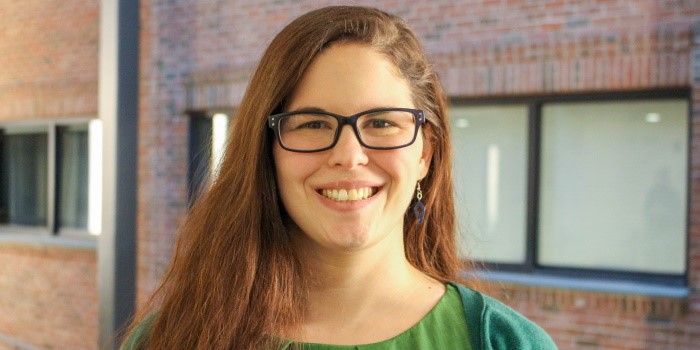
Q: Hi Madison! Can you introduce yourself and talk a little about your background?
Of course! I’m a transplant to Vermont by way of mid-Missouri; I grew up in a rural area surrounded by farms, though many were much larger than the typical New England farm. I moved to Vermont in 2016 and I’ve worked all over the map – nonprofits, education, communications, and farms. In 2020, I bought a farm in New Haven, VT with three of my friends, where we have goats, horses, and chickens. Connecting with my neighbors and with the agricultural community here has been one of the best things I’ve ever done. Joining the Agency feels like a way to bring all my interests into one place.
Q: My understanding is you will be involved in the Agency’s efforts to assist and promote Vermont’s Maple Industry. Can you talk a bit about that?
As maple production continues to grow, VAAFM realized it was missing a critical point of contact for the maple industry. My role’s main focus is to work as a liaison between the amazing producers, programs, and associations within Vermont. I’ll be making connections, listening to what is important to the maple industry, and bringing Agency resources to the table where we can. It ties in nicely with my other role coordinating the Specialty Crop Block Grant Program, which has funded multiple maple-focused grants over the years.
Q: From the Agency’s perspective, why is our state’s maple industry so important to Vermont agriculture and our state in general?
Maple obviously has a huge financial impact on our state as Vermont’s third largest agricultural product. But I also think a lot about how important maple is to our local communities and the culture of Vermont. Maple is critical to the Vermont landscape and VAAFM is interested in protecting the product, the producers, and the culture of sugarmaking.
Q: Can you speak to the importance of supporting the Vermont brand as it relates to our maple industry?
We all know Vermont maple is the best there is, right? Now that we have “local food” defined in statute, it’s going to be critical that we leverage this opportunity to support our Vermont producers and products. Though the economics of it are critical, I also think it all goes back to the cultural impact of Vermont Maple, too. Maple has such a huge impact on the local Vermont ecosystem and has for generations—it’s a process with a social component, there’s local or family producer pride, there’s even a strong bartering and gifting element to maple. Protecting the “Vermont” brand means making maple accessible to as many people as possible and preserving this wider impact for generations to come.
Q: What would you say to a Vermont maple producer who is concerned about climate change?
It’s a fair concern, and one I don’t think any of us take lightly. I’m hopeful that Vermont will continue to do its part in combating climate change. That said, it’s already making a mark on all agricultural sectors in Vermont. I am excited in this part of my role to learn about what opportunities there are for “future proofing” maple operations. If possible, I’d like to be involved in sharing that information and promoting action. As we transition into a new hardiness zone, we also do have to pay attention to some new opportunities— like tapping more red maples, which are better suited to the warmer climate.
Q: Is there anything else you’d like to say to our maple farmers?
I’m really excited to immerse myself in maple, and I hope I can learn directly from our maple producers. I can’t wait to get to know farmers from around the state. If you have questions or thoughts, don’t hesitate to reach out!

